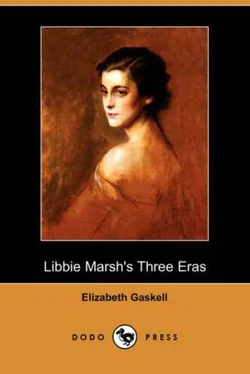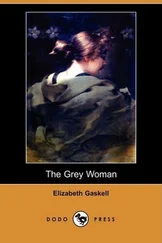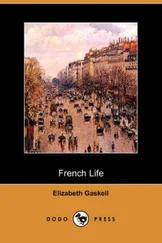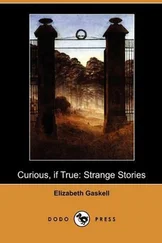"I must not go on at this rate; laughing gives one such an appetite."
"Oh! if that's all," said a merry-looking man, lying at full length, and brushing the fresh scent out of the grass, while two or three little children tumbled over him, and crept about him, as kittens or puppies frolic with their parents, "if that's all, we'll have a subscription of eatables for them improvident folk as have eaten their dinner for their breakfast. Here's a sausage pasty and a handful of nuts for my share. Bring round a hat, Bob, and see what the company will give."
Bob carried out the joke, much to little Franky's amusement; and no one was so churlish as to refuse, although the contributions varied from a peppermint drop up to a veal pie and a sausage pasty.
"It's a thriving trade," said Bob, as he emptied his hatful of provisions on the grass by Libbie's side. "Besides, it's tiptop, too, to live on the public. Hark! what is that?"
The laughter and the chat were suddenly hushed, and mothers told their little ones to listen, — as, far away in the distance, now sinking and falling, now swelling and clear, came a ringing peal of children's voices, blended together in one of those psalm tunes which we are all of us familiar with, and which bring to mind the old, old days, when we, as wondering children, were first led to worship "Our Father," by those beloved ones who have since gone to the more perfect worship. Holy was that distant choral praise, even to the most thoughtless; and when it, in fact, was ended, in the instant's pause, during which the ear awaits the repetition of the air, they caught the noontide hum and buzz of the myriads of insects who danced away their lives in the glorious day; they heard the swaying of the mighty woods in the soft but resistless breeze, and then again once more burst forth the merry jests and the shouts of childhood; and again the elder ones resumed their happy talk, as they lay or sat "under the greenwood tree." Fresh parties came dropping in; some laden with wild flowers—almost with branches of hawthorn, indeed; while one or two had made prizes of the earliest dog-roses, and had cast away campion, stitchwort, ragged robin, all to keep the lady of the hedges from being obscured or hidden by the community.
One after another drew near to Franky, and looked on with interest as he lay sorting the flowers given to him. Happy parents stood by, with their household bands around them, in health and comeliness, and felt the sad prophecy of those shrivelled limbs, those wasted fingers, those lamp-like eyes, with their bright, dark lustre. His mother was too eagerly watching his happiness to read the meaning of those grave looks, but Libbie saw them and understood them; and a chill shudder went through her, even on that day, as she thought on the future.
"Ay! I thought we should give you a start!"
A start they did give, with their terrible slap on Libbie's back, as she sat idly grouping flowers, and following out her sorrowful thoughts. It was the Dixons. Instead of keeping their holiday by lying in bed, they and their children had roused themselves, and had come by the omnibus to the nearest point. For an instant the meeting was an awkward one, on account of the feud between Margaret Hall and Mrs. Dixon, but there was no long resisting of kindly mother Nature's soothings, at that holiday time, and in that lonely tranquil spot; or if they could have been unheeded, the sight of Franky would have awed every angry feeling into rest, so changed was he since the Dixons had last seen him; and since he had been the Puck or Robin Goodfellow of the neighbourhood, whose marbles were always rolling under other people's feet, and whose top-strings were always hanging in nooses to catch the unwary. Yes, he, the feeble, mild, almost girlish-looking lad, had once been a merry, happy rogue, and as such often cuffed by Mrs. Dixon, the very Mrs. Dixon who now stood gazing with the tears in her eyes. Could she, in sight of him, the changed, the fading, keep up a quarrel with his mother?
"How long hast thou been here?" asked Dixon.
"Welly on for all day," answered Libbie.
"Hast never been to see the deer, or the king and queen oaks? Lord, how stupid."
His wife pinched his arm, to remind him of Franky's helpless condition, which of course tethered the otherwise willing feet. But Dixon had a remedy. He called Bob, and one or two others, and each taking a corner of the strong plaid shawl, they slung Franky as in a hammock, and thus carried him merrily along, down the wood paths, over the smooth, grassy turf, while the glimmering shine and shadow fell on his upturned face. The women walked behind, talking, loitering along, always in sight of the hammock; now picking up some green treasure from the ground, now catching at the low hanging branches of the horse-chestnut. The soul grew much on this day, and in these woods, and all unconsciously, as souls do grow. They followed Franky's hammock-bearers up a grassy knoll, on the top of which stood a group of pine trees, whose stems looked like dark red gold in the sunbeams. They had taken Franky there to show him Manchester, far away in the blue plain, against which the woodland foreground cut with a soft clear line. Far, far away in the distance on that flat plain, you might see the motionless cloud of smoke hanging over a great town, and that was Manchester, — ugly, smoky Manchester, dear, busy, earnest, noble-working Manchester; where their children had been born, and where, perhaps, some lay buried; where their homes were, and where God had cast their lives, and told them to work out their destiny.
"Hurrah! for oud smoke-jack!" cried Bob, putting Franky softly down on the grass, before he whirled his hat round, preparatory to a shout. "Hurrah! hurrah!" from all the men. "There's the rim of my hat lying like a quoit yonder," observed Bob quietly, as he replaced his brimless hat on his head with the gravity of a judge.
"Here's the Sunday-school children a-coming to sit on this shady side, and have their buns and milk. Hark! they're singing the infant-school grace."
They sat close at hand, so that Franky could hear the words they sang, in rings of children, making, in their gay summer prints, newly donned for that week, garlands of little faces, all happy and bright upon that green hill-side. One little «Dot» of a girl came shily behind Franky, whom she had long been watching, and threw her half-bun at his side, and then ran away and hid herself, in very shame at the boldness of her own sweet impulse. She kept peeping from her screen at Franky all the time; and he meanwhile was almost too much pleased and happy to eat; the world was so beautiful, and men, women, and children all so tender and kind; so softened, in fact, by the beauty of this earth, so unconsciously touched by the spirit of love, which was the Creator of this lovely earth. But the day drew to an end; the heat declined; the birds once more began their warblings; the fresh scents again hung about plant, and tree, and grass, betokening the fragrant presence of the reviving dew, and—the boat time was near. As they trod the meadow-path once more, they were joined by many a party they had encountered during the day, all abounding in happiness, all full of the day's adventures. Long-cherished quarrels had been forgotten, new friendships formed. Fresh tastes and higher delights had been imparted that day. We have all of us our look, now and then, called up by some noble or loving thought (our highest on earth), which will be our likeness in heaven. I can catch the glance on many a face, the glancing light of the cloud of glory from heaven, "which is our home." That look was present on many a hard-worked, wrinkled countenance, as they turned backwards to catch a longing, lingering look at Dunham woods, fast deepening into blackness of night, but whose memory was to haunt, in greenness and freshness, many a loom, and workshop, and factory, with images of peace and beauty.
Читать дальше












